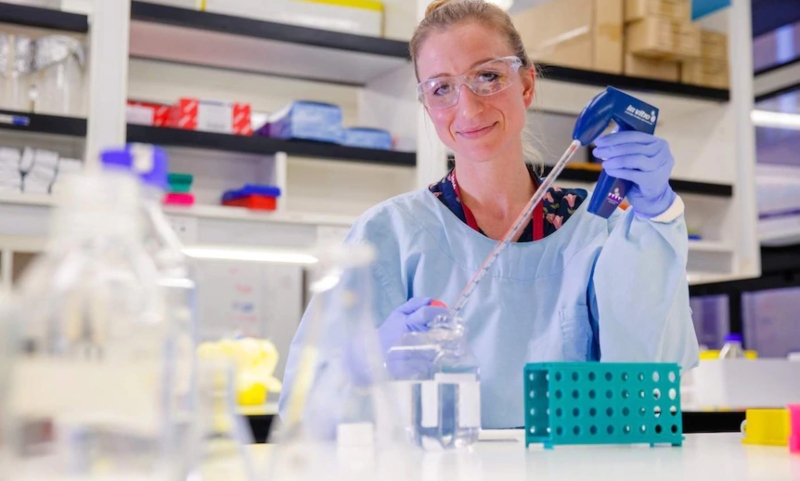Aussie researchers develop online tool to assess COVID-19 risk

SYDNEY: Researchers from a number of Australian universities have devised an online tool that is able to estimate an individual’s risks associated with COVID-19 and vaccinations.
The tool, called CoRiCal (COVID Risk Calculator) and announced to the public on Monday, was developed through a collaboration between the non-profit Immunisation Coalition, and researchers from the University of Queensland (UQ) and Flinders University.
Co-lead researcher and UQ virologist Dr Kirsty Short said the online tool would provide a springboard for doctors and community members to discuss the benefits and risks of COVID-19 vaccines.
“Users can access the tool and input their age, sex, community transmission and vaccination status to find out their personalised risk calculation,” said Short.
After filling in the basic information, the user is shown the chance of catching COVID-19, the chance of dying, and the chance of getting super-rare blood clots that have been associated with the AstraZeneca vaccine.
The results are then visualised on a graph and compared with the chance of other occurrences.
For men aged between 20-29 the chance of developing a blood clot from AstraZeneca vaccine is 0.09 in 1 million, which is compared with the chances of dying in a car accident in a year in Australia — 56 in 1 million.
One of the main developers of CoRiCal and Public Health professor at UQ, Colleen Lau told Xinhua that “relatable risk” is key when it comes to risk communication.
“If you put it [risk] into the context of something that they can relate to, then they can say, ‘Okay, well, if I’m happy to take that risk, like driving a car every day, or jumping off a plane with a parachute, then the risk of the vaccine is even less than that’.”
She said the tool also gives people insight into future risks as outbreaks evolve, especially in places like Queensland where transmission is currently near zero.
“So, the decision to get vaccinated shouldn’t be just based on ‘oh, we don’t have any transmission now’. It should be based on what’s likely to happen in the next few weeks or the next few months as we reopen,” said Lau.
She said the tool would be constantly evolving as situations change and new research comes to light.
The team is currently working on adding data around the Pfizer vaccine over the next couple of weeks.
Further down the road, the team has plans to add a way to factor in an individual’s pre-existing health conditions and the chances of developing long COVID-19.
“Information is still evolving quite rapidly. So, we need to wait until we actually have the evidence.”
Read More News On
Catch all the Business News, Breaking News Event and Latest News Updates on The BOL News
Download The BOL News App to get the Daily News Update & Live News.